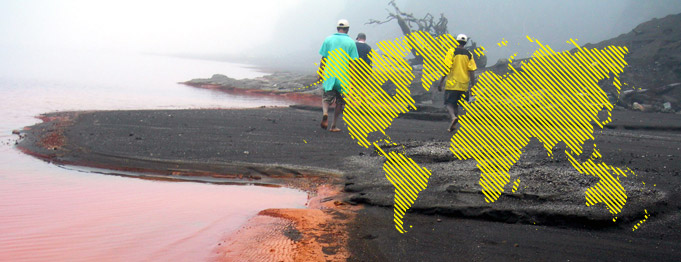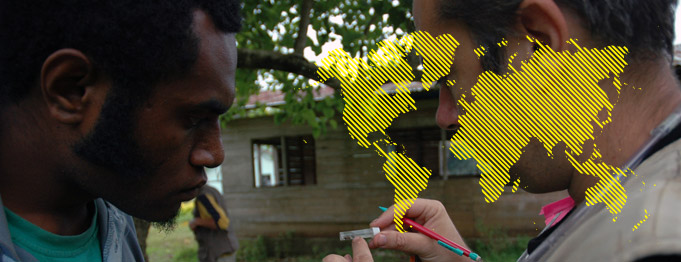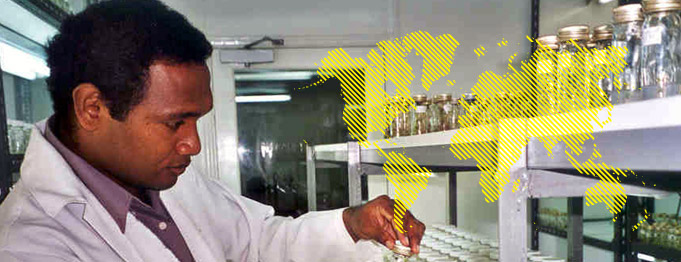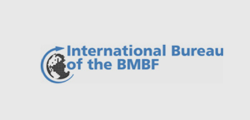Climate change adaptation strategies and biodiversity policies of the EU
Islands and Overseas Entities are the key for successful climate change adaptation strategies and biodiversity policies of the EU
Brussels, 21 December 2011: “Islands and Overseas Entities strategic location and unique assets offer leadership opportunities for the EU and EU Member States in biodiversity conservation, climate change adaption, green economy, renewable energy and marine conservation,” argued Dominique Benzaken, IUCN at the conference on “Islands and Overseas Entities’ contribution to biodiversity conservation and the fight against climate change”. Chaired by MEP Maurice Ponga, all participants agreed that islands and Overseas Entities’ specificities urgently need to be integrated in global, EU, national and regional biodiversity and climate change policies and programmes.
The European Overseas Entities include almost 80% of Europe’s known living species and have the highest rates of endemism. The contribution of the biological assets of islands and Overseas Entities is critical in ensuring the successful implementation of the Convention on Biological Diversity (CBD) COP10 decisions, in particular the Protocol on Access and Benefit Sharing. EU’s commitments to the global biodiversity goals set by CBD will benefit from action in its Overseas Entities. “In this regard, it is important to put emphasis on sustainable management of biodiversity and ecosystem services in these territories”, said Ahmed Djolaf, Executive Secretary, the Secretariat of the CBD.
Closing the knowledge gap through a bottom-up approach and strong political commitments are necessary prerequisites to fully integrate islands and Overseas entities’ specificities in European and International policies. A number of initiatives show the power of engaging all key players. These include, among others, IFREBIOM, the French Strategy for biodiversity in overseas, and NET-BIOME, a consortium of Overseas Entities working together on tropical and subtropical research in support of sustainable development.
“Access to funding sources for islands and Overseas Entities should be strengthened. The first BEST call for proposals is a first step in this direction but we should go further” stressed MEP Maurice Ponga. “Working together towards a durable BEST scheme to promote conservation and sustainable use of biodiversity and ecosystem services” should be the way forward, argued Robert Flies from DG Environment.
Besides BEST, the new Cohesion Policy for the post-2013 period offers promising prospects. Other doors could be opened with the LIFE+ Programme, in discussion in the European Parliament soon. “It is vitally important to open LIFE+ to islands and Overseas Entities” MEP Struan Stevenson said. The conference brought together high level International, European, national and regional experts. It was organized by the Secretariat of the European Parliament Intergroup on Climate Change, Biodiversity and Sustainable Development, run jointly by the European Bureau for Conservation and Development (EBCD) and the International Union for Conservation of Nature (IUCN).
Contact: Mélanie LAMAISON, Secretariat of the Intergroup on Climate Change, Biodiversity and Sustainable Development European Bureau for Conservation and Development (EBCD), email: melanie.lamaison@ebcd.org, phone: +322-230-30-70.




























